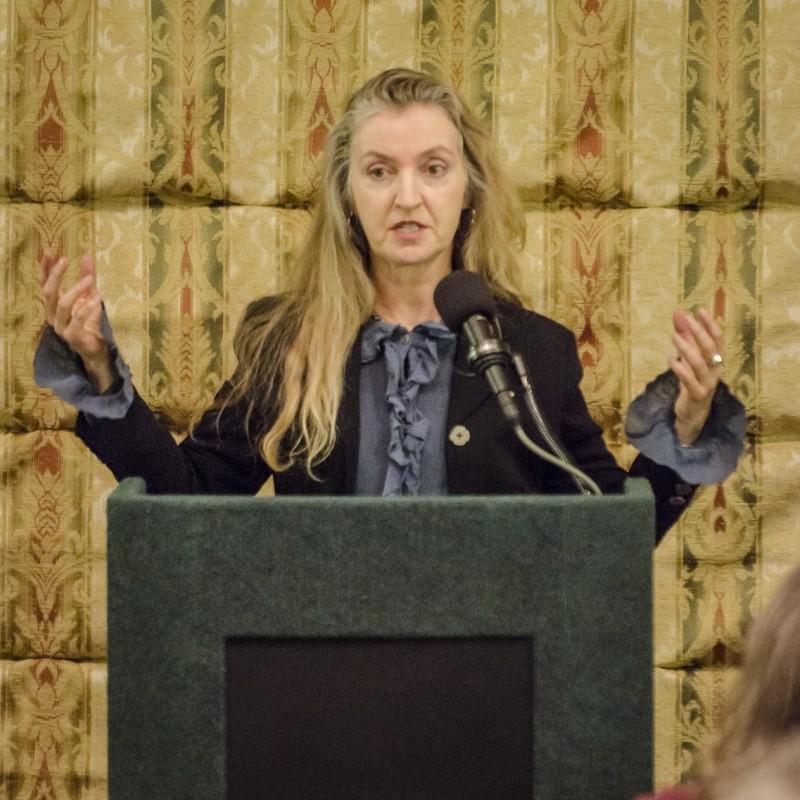At 6:30 pm on Wed., Nov. 12, in the William Knox Holt Center, Rebecca Solnit visited Trinity and gave a talk regarding her latest collection of essays entitled “Encyclopedia of Trouble and Spaciousness” and held a book signing afterwards.
Solnit has published 15 books on a variety of topics including environment, landscape, politics, community, art, memory and hope.
“[Solnit] is one of the most important and significant writers writing today,” said Barbara Ras, director of Trinity University Press. “She has been compared, and justifiably so, to Joan Didion, Susan Sontag and Annie Dillard.”
Trinity University Press has published two of Solnit’s books including “Encyclopedia of Trouble and Spaciousness” and “Yosemite in Time.”
“When you have a chance to publish a person of such major stature and someone who writes with both lyricism and a kind of ferocity and with precision and detail, then it is a spectacular opportunity,” Ras said. “Her [Solnit’s] standard publisher is Penguin in New York but they just do not publish essays, which turned out to be to our benefit.”
The talk hosted on Wed. evening was a standard event that the press tries to put on for all authors.
“Part of our mission at the Trinity University Press is to not only have our books between covers, but we want to have the authors visit Trinity and have a chance to enrich the campus community and have the experience in San Antonio so people get to meet the author, exchange ideas and have the wonderful pleasure of hearing someone very smart give a provocative and exciting talk,” Ras said.
At the event, Ras introduced Solnit, who then gave a short speech regarding her latest book and read an essay she had been working on for the last couple of days.
During her introduction, Solnit commented on Trinity University Press saying, “It is wonderful having a place that will do this kind of publishing that really can be deeply idealistic and imaginative, that can operate in a space that is not commercial publishing and is not conventional academic publishing either.”
She went on to introduce an essay she had been working on titled “My Bad Muses, Our Best Problems.” It explores a range of topics that are at the root of her book Encyclopedia of Trouble and Spaciousness.
Her speech included a variety of topics, such as the power of the negative muse, the seemingly unanswerable question of who did Henry David Thoreau’s laundry, her encounters with publicity and cultural reclamation in Yellowstone National Park.
“It was stimulating and refreshing to experience a clearly brilliant and gifted speaker who is deeply informed by and committed to the (far) left but who at the same time is open-minded enough to criticize some of its shortcomings,” said Peter O’Brien, professor of political science.
“Her observation that Berkeley is no less dogmatic than Lynchburg reinforced for me the importance of continuing to engage in difficult dialogue. As Solnit poetically put it, life (and I would add learning) is boring without the “˜negative muse.'”







